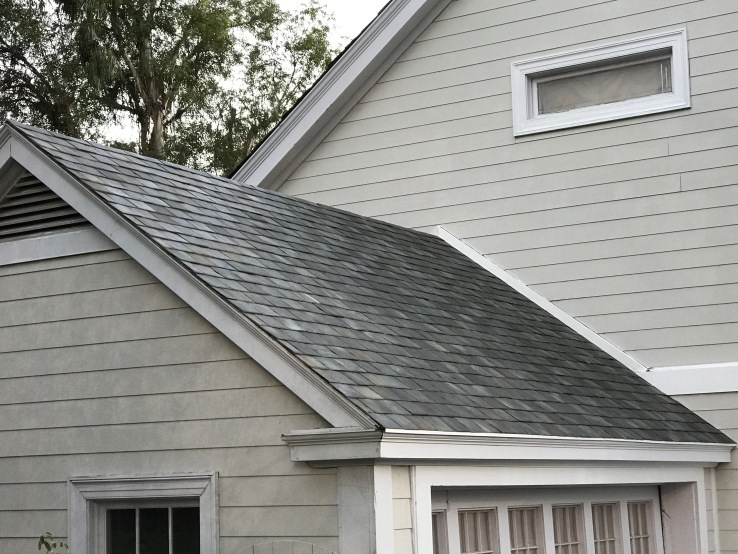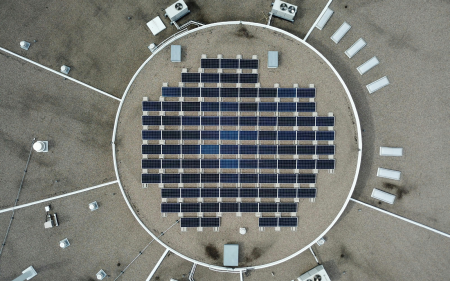Going off-grid isn’t entirely cost-effective yet, but we’re 80% there and it has freed us from Eskom’s sudden-onset rolling blackouts.
Now that my new solar household has lived through several cycles of Eskom’s unpredictable load-shedding, I can report back on what the experience was like. But first I have to apologise. It’s the same apology I felt I had to make after I had fibre installed in our home.
Suddenly, I know what it’s like to live in the same suburb as a cabinet minister or Eskom manager. When the rest of the neighbourhood WhatsApp group started the usual “has anyone got power?” questions, we had.
We have power. We always have power. I feel guilty. But then, I’m Jewish, I can’t help it.
The first time that rolling blackouts happened (let’s call them what they are) and the grid went down, the only person who noticed was me. I was waiting for it, thanks to a notification from arguably the most important South African-developed app ever, Eskom se Push (if not for the witty puny name alone). Everyone else was busy, but I deliberately stopped at the anointed time and went walking around the house to see what tripped or if its anything tripped at all. Nothing.
The only noticeable change was when someone opened a tap and there was no water. As I’ve learnt more and more about the subtle dance of usage (load) versus charging the batteries – usually from the solar panels but sometimes directly from the grid when there are rolling blackout warnings – it is a constant dance of variables.
We took the plunge earlier this year when my wife quite rightly pointed out: it’s the right thing to do and we’ll save money every time Eskom increases its tariffs. We chose Elite Energy Solutions, the same four-generation family of electricians-turned-solar-enthusiasts who installed my parents-in-law’s system two years ago. At first, I mistakenly thought the amount of time Chris Liebenberg, its technical director, spent fiddling with their system was a sign that the technology wasn’t ready.
But after our installation about two months ago, I have realised that installing a solar system isn’t the kind of “install and leave” set up we’re used to with a new DStv dish or fibre connection.
A solar system is a living beast, I now know, luckily one I haven’t had to master myself. Liebenberg logs into the two black steel cabinets in our garage whenever he gets blackout alerts. He checks they are switching over to “power up the batteries from whatever source you can” mode so that when said blackouts roll on up, our house always has power.
No wonder Liebenberg makes the joke that he’ll be friends with his clients for 20 years. But he’s exactly the kind of friend you need to tinker your way through the off-grid process.
Going solar is an ongoing process, that my wife and I are abundantly happy we’ve done. It pains me to think that anyone who can afford to, will go off the electricity grid – robbing Eskom of yet more income, but rewarding those who can win a time trip back to 2006, before the #load-shitting began.
“When load shedding first began in 2007, it was a surprise for nearly everyone,” South Africa’s sagest political columnist Stephen Grootes wrote in December 2019. “But the people in charge of Eskom, energy and government at the time had no excuse for their ignorance. Nine years before, in 1998, an Energy White Paper had predicted that ‘for an assumed demand growth of 4.2%, Eskom’s present generation capacity surplus will be fully utilised by about 2007’.”
Every time Eskom increases its tariffs – or Joburg’s City Power’s 14.59% increase from July 1 – it drives more people who are fed up, or who can afford it, or small business owners who can’t afford not to, towards going solar.
My father-in-law calculated Eskom’s fees have increased 43% in the two years since Elite Energy installed their solar. Every increase makes going solar that much more affordable. I’ll ask my friend Hillel the Jewish accountant – who, unlike me, speaks maths as a first language – for an answer next time I write about this.
I read with horror in last weekend’s DM168 newspaper the ongoing train-wreck that is Joburg’s power problems and the looming disaster with the water system.
I’ve felt equally guilty all the times the neighbourhood WhatsApp group flares up over water outages. When we bought our house, it already had a borehole, which we filter before using in the house – thanks to pump guru JP Storbeck.
Do you know, that just to be connected to the water network, the City of Joburg charges each house just under R1,000 a month. Before you even use any water. If the water is flowing, with 55,863 pipe bursts during its 2020/21 period, as Ferial Haffajee wrote.
Eskom, as the experts have been warning us for years, is only the tip of the iceberg. Wait, they warned, until the water problems become apparent. Now they have.
This article first appeared in the Daily Maverick.




